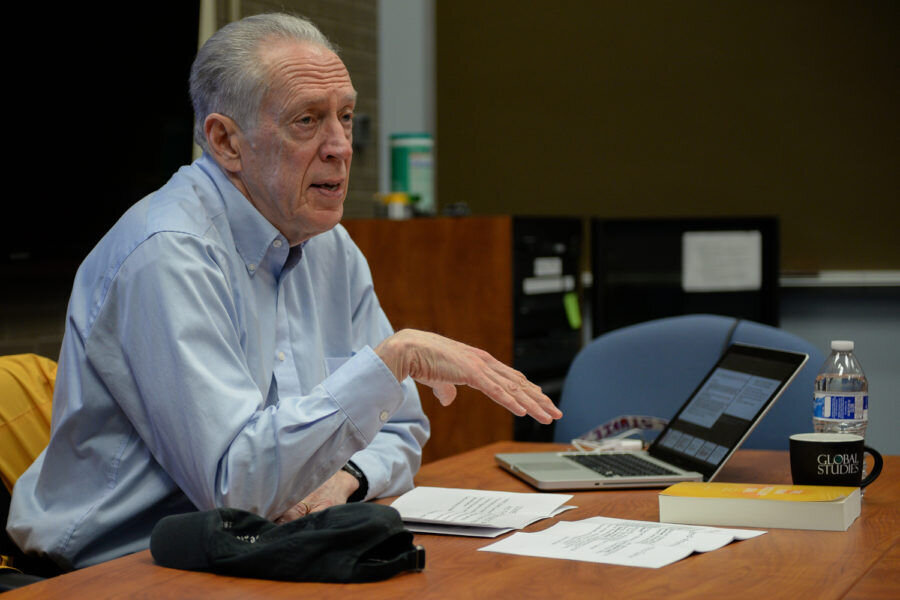‘U.S. attempt to present itself as JCPOA participant proves paradox in its foreign policy’

TEHRAN - Dennis Jett, a former U.S. diplomat, has said that the United States’ attempt to present itself as a participant to the 2015 nuclear deal, known as the JCPOA, proves paradox in Washington’s foreign policy.
“Trump [U.S. President Donald Trump] boasts about quitting an agreement signed by Obama [former U.S. president], but his secretary of state [Mike Pompeo] says the United States is a party to the nuclear deal. It shows lack of coordination in Trump’s foreign policy which is based on words that have no stable sense,” he told IRNA in an interview published on Sunday.
He noted that no member of the UN Security Council will accept the U.S. claim of being a participant in the JCPOA.
In a report on April 26, The New York Times said U.S. Pompeo is preparing a legal argument that the U.S. remains a participant in the Iran nuclear accord that President Trump has renounced, part of an intricate strategy to pressure the United Nations Security Council to extend an arms embargo on Tehran or see far more stringent sanctions reimposed on the country.
Trump unilaterally quit the nuclear deal in May 2018 and introduced the harshest ever sanctions in history on Iran as part of his administration’s “maximum pressure” strategy against Iran. By its exit from the nuclear accord, the U.S. flagrantly violated UN Security Council Resolution 2231 that approved the pact.
In a report published by Reuters on Tuesday, it was also said that the United States will face a tough, messy battle if it uses a threat to trigger a return of all UN sanctions on Iran as leverage to get the 15-member Security Council to extend and strengthen an arms embargo on Tehran, diplomats said.
Washington has shared its strategy, confirmed by a U.S. official speaking on condition of anonymity, with Britain, France and Germany, who are council members and parties to the 2015 deal between Iran and world powers.
Under that deal, a UN arms embargo on Iran is due to expire in October. A U.S.-drafted resolution to extend the embargo has been given to Britain, France and Germany, the U.S. official confirmed, but UN diplomats said it has not been shared with the remaining 11 council members, including Russia and China.
“It will be dead on arrival,” predicted a Security Council diplomat, speaking on condition of anonymity.
A resolution needs nine votes in favor and no vetoes by Russia, China, the United States, Britain or France to be adopted. Diplomats said the United States would likely struggle to get Russia and China to allow an arms embargo extension.
Russia and China are also parties to the Iran nuclear deal.
“It’s very difficult to present yourself as a compliance watcher of a resolution you decided to pull out of,” said a European diplomat, speaking on condition of anonymity. “Either you’re in or either you’re out.”
It is a move likely to be challenged, diplomats said.
“It’s going to be messy from a Security Council standpoint because, regardless of what (Britain, Germany and France) think, Russia and China are not going to sign up to that legal interpretation,” said a European official, speaking on condition of anonymity.
NA
